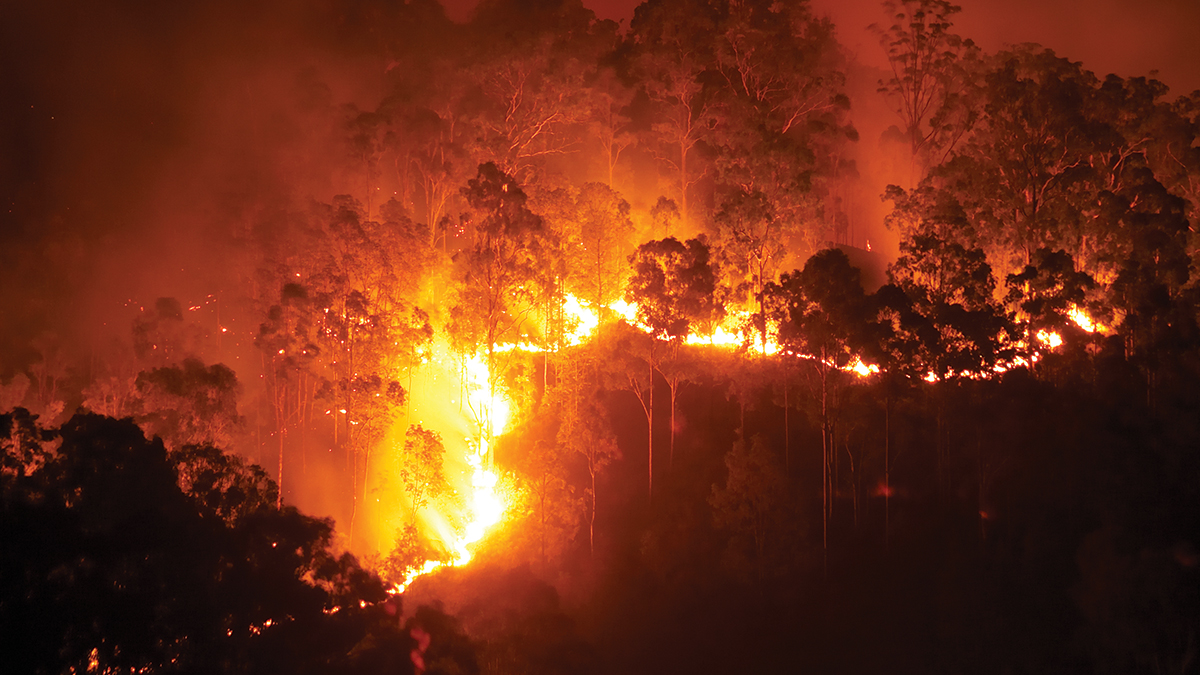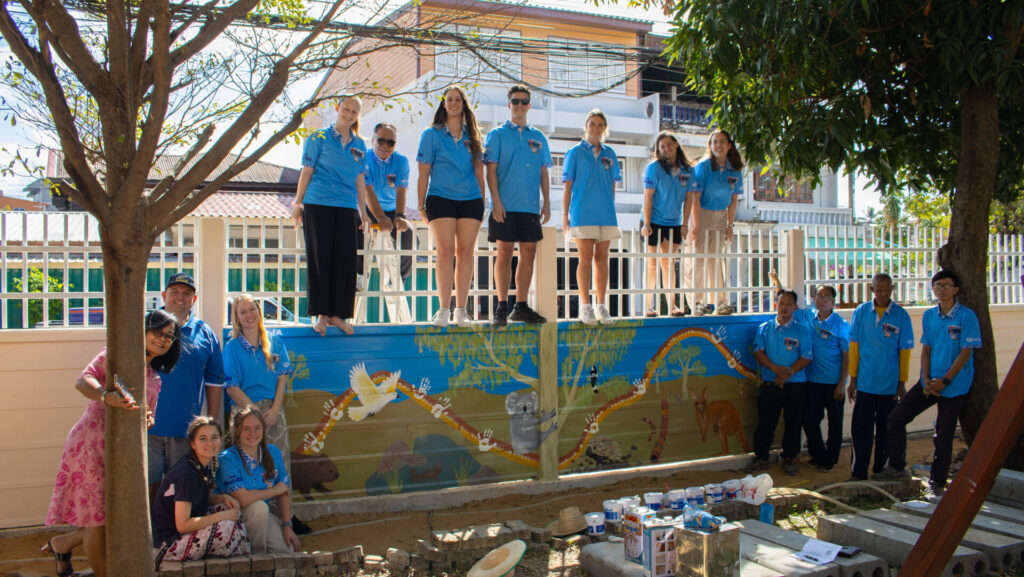I had seen the news: a raging bushfire was burning homes and threatening lives in Tathra, southern NSW. So when my phone rang, I packed my bags, hugged my wife goodbye and jumped in the car.
Arriving at the Bega showground, I was met with chaotic scenes. Cars lined the streets surrounding the perimeter of the evacuation centre. I squeezed my car into a spot between a trailer fridge and some rubbish bins. There were caravans, media vans with satellite dishes and cameramen in hi-vis trousers. I slipped on my ADRA vest, scooped up bags of stationery, grabbed my laptop bag and headed for the entrance. I was anxious to get inside.
Entering the pavilion, I was met with the sound of distracting chatter as people tried to be heard above the din. There was the smell of dust that came up from between wooden floorboards that hadn’t experienced this much foot traffic for a long time.
Spotting the ADRA booth, I made my way over, squeezing between volunteers carrying trays of cut watermelon, journalists holding cameras and notepads, and displaced residents anxious to know the fate of the homes they had just fled. ADRA was positioned between Family and Community Services (FACS), which ran the evacuation centre, and Local Land Services, which was providing stock and pet care.
After greeting our team leader, I was tasked with confirming accommodation availability from the local providers. It soon became evident that we would have to place some people in venues outside Bega as many of the local rooms were taken by media, emergency services personnel and other volunteers.
We set about working the phones, calling every motel, hotel, holiday rental, caravan park and B&B on our list. The constant hum of chatter from hundreds of people packed inside the high-roofed hall made phone conversations difficult. There were details to be gleaned: were pets allowed, availability of cots, the room and bed configurations, and disability access.
While my wife and I had taken part in previous disaster simulations, this was a much greater scale. It was only then I appreciated the training and preparation from ADRA leaders in the past who drilled us on the process of placing people in safe emergency accommodation.
Our top priority when meeting people referred to us was to help them maintain their dignity as they accepted the help needed in this interim phase. Their demeanours varied: from the mature folks who remained philosophical despite losing everything, to those in tears who needed comfort and reassurance in the uncertainty. My heart went out to them as I reminded myself that I may need care of a similar kind one day. It also reminded me of the value of the basics we take for granted, like the security of health and life.
While there were brief intervals when the workload eased or other team members covered for each other so we could take meal breaks, eventually there was a weariness from the tension of the situation and the constant noise in the centre. We were tired but grateful for the opportunity to play a small part in helping people to get back on their feet.
When I look back and reflect, I’ll remember the teamwork. The small contributions of a vast number of individuals who collectively made a huge difference to people during a temporary crisis in their lives. Everyone had their role: the Red Cross as the first port of call for people entering the centre; St Vincent de Paul, with mountains of clothing and towels; the Salvation Army, helping with food distribution; the disaster recovery chaplains, providing a listening ear for people to offload their trauma; and Anglicare, distributing sanitary packs and soft toys for kids. And all of these organisations staffed by wonderful, selfless volunteers.
I felt proud and privileged to represent ADRA. Despite the complexity and the need to operate within certain boundaries, ADRA is fulfilling its Christ-given purpose: to serve people wholeheartedly and humbly.
Russell Alsop is assistant manager of Adventist Alpine Village in Jindabyne, NSW.






